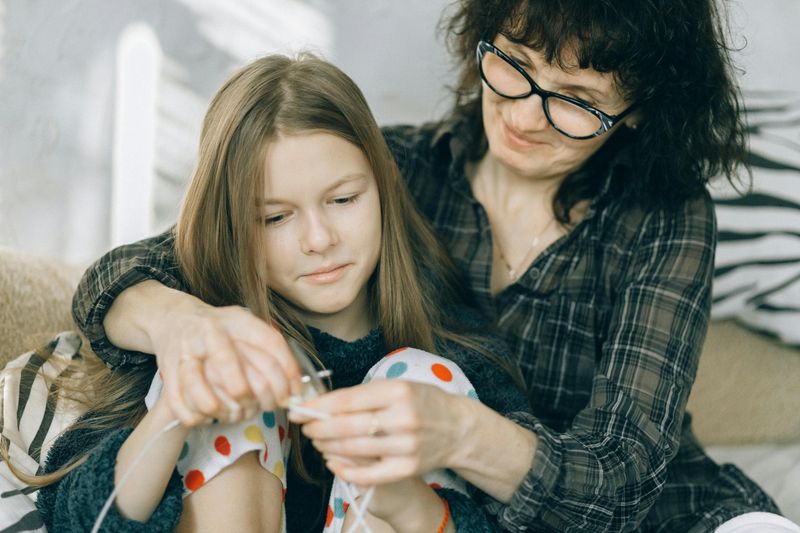11 Subtle Signs You Were Raised in a Highly Supportive Home

Our childhood homes shape who we become as adults in countless ways. Growing up in a supportive environment provides a foundation that affects our confidence, relationships, and how we handle life’s challenges. While some people clearly recognize they had supportive parents, others might not realize how many positive elements were actually present in their upbringing. Here are some subtle signs that you grew up in a home where support and encouragement were the norm.
1. You Feel Comfortable Expressing Your Emotions

From an early age, your feelings were validated rather than dismissed. When you cried, someone comforted you instead of telling you to “toughen up.” Your parents created space for all emotions – happiness, sadness, anger, fear – treating each as a natural part of being human.
This emotional acceptance helped you develop healthy emotional intelligence. You learned that feelings aren’t something to hide or be ashamed of, but rather important signals to understand and process. Now as an adult, you don’t bottle up emotions until they explode.
You recognize what you’re feeling and know how to express yourself in constructive ways.
2. Asking For Help Doesn’t Feel Like Failure

Reaching out when you need support comes naturally to you. In your childhood home, questions were welcomed and asking for guidance was encouraged as a sign of wisdom, not weakness.
Your parents or caregivers modeled this behavior themselves, openly seeking advice when needed and showing that nobody has all the answers. They created an atmosphere where collaboration was valued over struggling alone.
This foundation helps you navigate adulthood with a healthy perspective on interdependence. You understand that seeking assistance is simply part of being human and connects you more deeply with others.
3. Making Mistakes Doesn’t Devastate You

Remember when you spilled juice all over the carpet? Instead of harsh punishment, your parents helped you clean up and treated it as a learning opportunity. This approach taught you that mistakes are normal parts of growth rather than catastrophic failures.
Your supportive home emphasized the process over perfection. Parents who responded to errors with patience showed you that your worth wasn’t tied to flawless performance. Today, this translates to resilience.
When things go wrong, you don’t spiral into shame or self-criticism. You pick yourself up, learn what you can, and move forward with confidence.
4. Your Interests Were Celebrated, Not Directed

Adults in your home paid attention to what genuinely sparked your curiosity. Whether you were obsessed with dinosaurs, spent hours drawing, or collected unusual rocks, your passions were acknowledged as important – even when they changed frequently.
Your parents provided resources for exploration without forcing their own unfulfilled dreams onto you. They attended your performances, asked questions about your hobbies, and created space for you to develop your authentic interests.
This freedom to explore helped you develop intrinsic motivation. As an adult, you pursue activities because they genuinely matter to you, not to please others or check boxes.
5. You Have Healthy Boundaries

Growing up, your thoughts and personal space were respected. Knocking before entering your room, asking before sharing your personal information with others, and acknowledging your right to privacy showed you that boundaries matter.
Your caregivers modeled appropriate boundaries themselves. They demonstrated what healthy relationships look like by respecting each other’s limits and communicating openly when lines were crossed. This foundation helps you navigate adult relationships with clarity.
You can say “no” without excessive guilt, recognize when others are overstepping, and communicate your needs effectively – all skills learned in your supportive childhood home.
6. Disagreements Didn’t Mean Disconnection

Conflict in your childhood home wasn’t a catastrophe. Your family could disagree – sometimes strongly – without it threatening your sense of security or belonging. Arguments were resolved with respect rather than silent treatment or explosive anger.
You witnessed adults apologizing when they were wrong and making amends. This showed you that relationships can bend without breaking and that love remains even during disagreements. Now in your adult relationships, you don’t panic when conflicts arise.
You have the emotional tools to work through differences constructively, knowing that healthy disagreement is part of any meaningful connection.
7. Your Accomplishments Were Noticed, Not Just Perfect Outcomes

“I’m proud of how hard you worked on that” was something you heard regularly, regardless of the final result. Your supportive home celebrated effort, improvement, and the courage to try difficult things – not just trophies and A+ grades.
Parents recognized your unique strengths rather than comparing you to siblings or classmates. They understood that genuine growth happens through consistent effort over time, not just in moments of obvious achievement.
This approach helped you develop a growth mindset. You understand that abilities can be developed through dedication and work, making you more resilient when facing new challenges as an adult.
8. You Learned To Advocate For Yourself

Your parents taught you to speak up for yourself respectfully. They didn’t always jump in to solve your problems, instead coaching you through handling difficult situations on your own when appropriate for your age.
Role-playing conversations before a challenging interaction or discussing strategies for addressing issues with teachers or friends gave you practical tools. Your caregivers showed confidence in your ability to handle age-appropriate challenges.
This empowerment translates to adult life as healthy assertiveness. You can express your needs clearly without being passive or aggressive, a skill directly traced to your supportive upbringing.
9. Your Home Was A Safe Harbor, Not A Performance Stage

Walking through your front door meant leaving behind the pressure to perform. Home was where you could truly exhale, be yourself, and recharge – not another place where you had to be “on.” Your family created an atmosphere where authenticity was valued over appearances.
They loved the real you, including your quirks, bad days, and messy moments. This unconditional acceptance provided the security needed for healthy development. As an adult, you likely seek and create spaces where people can be themselves without judgment.
Your supportive upbringing taught you the value of genuine connection over impression management.
10. You Were Included In Age-Appropriate Decisions

Your opinions mattered from an early age. Whether choosing weekend activities, weighing in on family vacations, or selecting your own clothes, you had appropriate input in decisions that affected you. This voice in family matters wasn’t unlimited – parents still set necessary boundaries – but it was respected.
They explained their reasoning when saying no rather than simply declaring “because I said so.” Being included in this way developed your decision-making muscles gradually.
Now as an adult, you can weigh options, consider consequences, and make choices with confidence, all skills practiced in your supportive childhood home.
11. You Grew Up With Reasonable, Explained Expectations

Rules in your home weren’t arbitrary or constantly changing. Your parents set clear, age-appropriate expectations and took time to explain why certain rules existed rather than demanding blind obedience.
Consequences for breaking rules were consistent and logical, connected to the actual behavior rather than based on a parent’s mood. This predictability created a sense of security and fairness. The balance between structure and flexibility taught you self-discipline.
As an adult, you understand that boundaries are necessary in all relationships and can establish healthy ones in your own life and with others.

Comments
Loading…